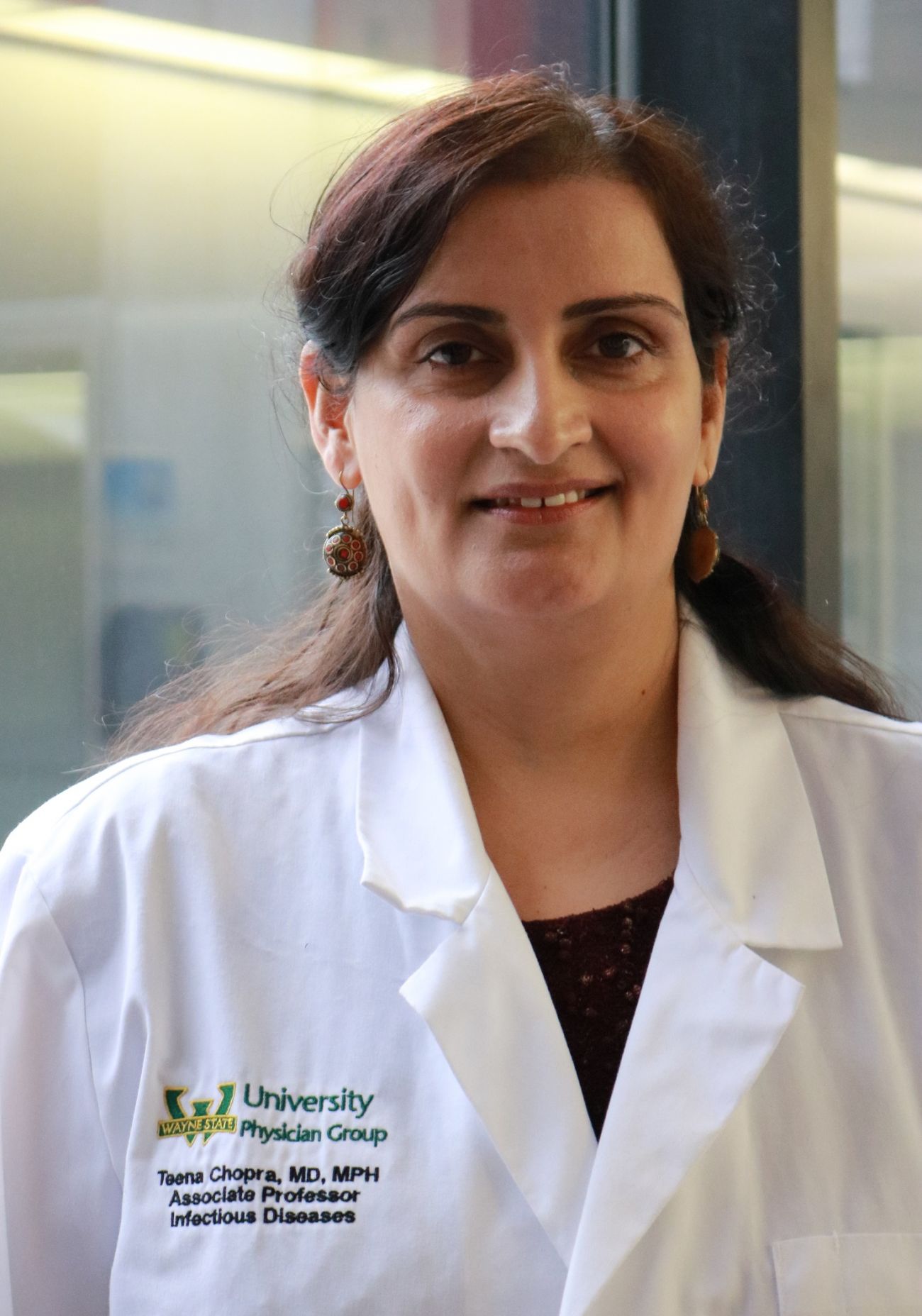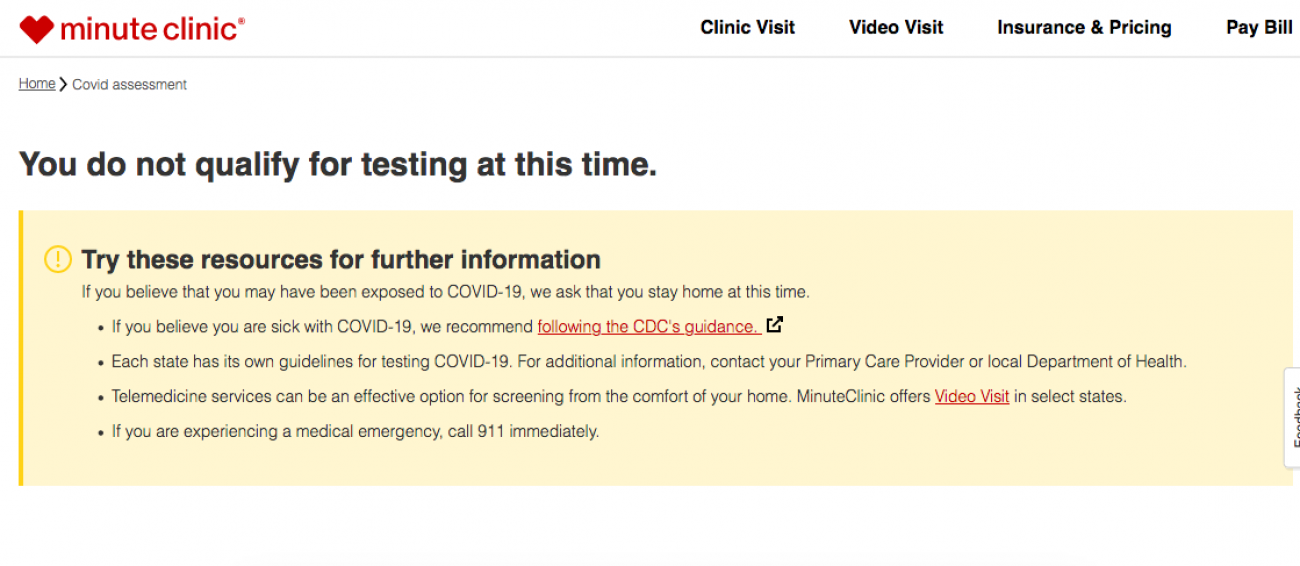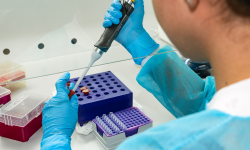Gov. Whitmer urged coronavirus tests for all key workers. Don’t bank on it

Safely reopening Michigan’s economy requires widespread coronavirus testing, which is why Gov. Gretchen Whitmer is pushing for expanded testing and, recently, urged the state’s essential workers to get tested regardless of whether they have symptoms.
But if you’re among the 49 percent of the state’s workforce that counts as an essential worker, don’t bank on getting one.
Seven of 12 large Michigan health systems queried by Bridge Magazine said they are not yet testing asymptomatic essential workers, largely because they still lack enough supplies — particularly the nasal swabs used to collect samples — to expand beyond testing people who show symptoms such as coughing, fever or respiratory distress.
Only two of the 12, Beaumont Health and VA Ann Arbor Healthcare, told Bridge they are testing essential workers without symptoms — though the VA added significant caveats on which workers would be tested. And Beaumont said it is sending samples from asymptomatic workers to a private lab because it does not have the capacity to test the samples itself.
- The latest: Michigan coronavirus map, curve, chart, updated COVID-19 news
- Michigan’s latest stay-home order to allow landscaping, boating and golf
- What Gov. Gretchen Whitmer’s stay-at-home executive order means to Michigan
Testing for asymptomatic essential workers is available at many drive-thru clinic testing sites opened in Michigan earlier this month. However, four major drugstore testing sites cited by the governor showed limited availability.
Michigan Medicine at the University of Michigan, Spectrum Health, Henry Ford Health System, Detroit Medical Center, Sparrow Health System, Covenant HealthCare and Mercy Health System all told Bridge that a continuing shortage of supplies is holding them back from ramping up testing.
“We would like to test asymptomatic employees, but it’s not something that currently we are able to do,” said Dr. Teena Chopra, a professor of infectious disease at Wayne State University, who is also in charge of infection control for the Detroit Medical Center’s eight hospitals. “We need swabs, we need reagents, and we need the testing kits that we use to process the samples.”

DMC is testing some asymptomatic employees who have had direct contact with COVID-19 patients, and some high-risk asymptomatic patients, such as those being treated for cancer who come in for procedures like bone marrow biopsies. With more supplies, Chopra said, “the sky is the limit” in how many people the Detroit-based health system would like to test.
What Whitmer said, and what’s possible
Whitmer said at a news conference last week she’d like to more than double the amount of testing in the state, a goal shared by epidemiologists and public health experts who say widespread testing is critical to safely opening the economy. Michigan has gone from testing fewer than 1,000 samples per day in mid-March to between 3,000 and 9,000 daily now.
Whitmer acknowledged “supplies to run those tests are still a constraint” but called upon the state’s asymptomatic essential workers to get tested.
“We had to prioritize who was tested in the early phases, now we want to make sure we’re getting more people tested in Michigan,” she said last week, adding, “if you are an essential worker reporting to work in person, whether you have symptoms or not, please get tested.”
The governor said the state could process up to 11,300 COVID-19 diagnostic tests a day if Michigan had adequate supplies of collection kits, including hard-to-find nasal swabs — that’s more than double the 4,500 tests the state has been producing daily. Even if Michigan were testing at capacity, however, that’s far short of the 19,700 daily tests Harvard researchers and the health care site STAT say Michigan needs for the state to safely reopen.
If you are calling because you are a health care or essential worker who is not experiencing symptoms and you heard that the governor has opened testing to you, at this time, our testing is limited to people with active symptoms.” — Voicemail recording at drive-thru COVID-19 testing site in Flint
Tiffany Brown, spokesperson for Whitmer, clarified the governor’s comments on Monday of last week, saying the state is prioritizing testing for those at highest risk, including hospitalized patients and health care workers with symptoms. She said the state is “opening the door to testing additional populations” and is coordinating with testing sites “to help get the supplies needed to help Michiganders get tested.”
At last week’s news conference, the governor also announced the opening of eight drive-thru testing sites across the state at Walmart, Walgreens, CVS and Rite Aid locations to help accommodate increased testing. She said essential workers would not need a doctor’s prescription to be tested at those sites.
In reality, Bridge found, that too varies.
Asymptomatic health care workers who use CVS’s online screening form are told they don’t qualify for testing in Michigan.

When asked for comment, a spokesperson for CVS said the Dearborn site does indeed have a set number of testing slots each day to accommodate “first responders and local health care workers” and that it’s using CDC criteria, which allows screening of asymptomatic people if state and local plans allow them.
Online screening tools for Walmart, Walgreens and Rite Aid tell essential workers with no symptoms that they qualify — but only if they are first responders, health care workers or prison staff, due to the high-risk nature of their jobs. That means many other essential workers who have significant interaction with the public, such as bus drivers, sanitation workers and grocery store clerks, would be ineligible for testing.
Walmart, Walgreens and Rite Aid did not respond to requests for comment.
Continued shortages for essential workers
Testing in Michigan has increased since March. But across the state, as in the rest of the nation, hospitals continue to face a shortage of swabs and testing reagents necessary to perform tests as demand for the products has outpaced manufacturing.
That’s a problem: Scientists need robust testing to be able to monitor how the disease is evolving so they can give recommendations to officials on when and how to safely open recreation and workplaces. That includes testing people without symptoms as they can still be carriers of COVID-19 and pass it to others they come in contact with.
“Testing is the only way that we will know where the virus is so we can appropriately deploy our resources to slow the spread,” Whitmer said.
Bridge reached out to 17 hospital-based diagnostic laboratories processing coronavirus tests in Michigan and the 13 drive-thru locations announced by the state in mid-April to see whether they are testing asymptomatic essential workers.
Seven of the 12 hospital systems that responded — including Michigan Medicine at the University of Michigan, Spectrum Health, Henry Ford Health System, Detroit Medical Center, Sparrow Health System, Covenant HealthCare and Mercy Health System — told Bridge last week there just aren’t enough supplies in Michigan to test more people without symptoms, and it’s unclear when there might be more available.
“We’re doing OK on our testing supplies,” said Angela Klinske, public relations director for Mercy Health and the St. Joseph Mercy Health System, which has hospitals in west and southeast Michigan. The system is working to increase testing capacity for first responders and at-risk populations, but for the time being “if we start ramping up our testing, that could threaten our supplies,” she said.
Two — Bronson Healthcare and UP Health System — couldn’t or wouldn’t say whether they were testing asymptomatic essential workers.
Only two, VA Ann Arbor Healthcare and Beaumont Health, said they will test asymptomatic essential workers, with limits. VA included the caveat that it is testing only their own essential workers who are “front-line staff in clinics where they are in regular contact with patients.” Beaumont told Bridge it’s testing fewer than 20 percent of the samples it could because of supply shortages.
At the Flint site at Kettering University’s Atwood Stadium, patients who call the hotline are greeted with a message:
“If you are calling because you are a health care or essential worker who is not experiencing symptoms and you heard that the governor has opened testing to you, at this time, our testing is limited to people with active symptoms.”
Like Beaumont, many hospitals said they’re processing tests under capacity, which means they could test more people if they had the necessary resources such as reagents and testing swabs.
Duane Newton, director of Michigan Medicine’s clinical microbiology lab, said it has sufficient supplies to meet current demand for testing of people with symptoms. But the lab is “trying to understand how” they can expand to include essential workers without symptoms.
“A situation where we’re testing asymptomatic people outside of that [current population] puts a lot of strain on our resources, and we have to be very careful about how we do that,” he said Thursday on Facebook Live. “We don’t have those resources.”
Uncertainty ahead
Many of the hospital systems indicated they’re on the razor’s edge — challenged for supplies but struggled to quantify how many will be needed in the future, as demand and supplies change day to day.
It’s also unclear how big the shortfall in these supplies may be, because there is no statewide system for monitoring that information.
“No one is tracking how many people tried to get tested versus how many could,” Michigan Department of Health and Human Services spokesperson Lynn Sutfin told Bridge. “We know the capacity for the sites, just don’t have that level of detail on supplies.”
MDHHS lists asymptomatic essential workers as a fourth priority for testing, behind just about anyone with any symptoms of COVID-19, including mild ones.
“Asymptomatic essential workers can be tested if the site has enough supplies on hand,” Sutfin said. “Priority continues to be given to those who are very sick which is why there might not be enough supplies.”
The MDHHS lab can process up to 400 coronavirus tests a day, Sutfin said, but is only doing one-quarter to half of that because “that’s as many specimens as we have received.” Testing sites have been urged to send their samples to other labs with greater capacity to process.
But even some of those larger labs, such as the one at Henry Ford Health System, are not processing tests at full capacity simply due to a lack of samples to test.
The governor’s office said Monday that while some hospitals in the state may not be able to test asymptomatic essential workers, there are other sites — including doctor’s offices, urgent cares and drive-thru testing locations — that are able to test these people.
Whitmer is “right in making the statement that asymptomatic essential workers should get tested, she’s absolutely right,” DMC’s Chopra said. “The question is how can we use the limited resources we have to get that thing done?”
Some county public health departments are able to expand testing, though supplies change daily. Oakland County, which over the weekend recorded 168 new cases of the coronavirus, is offering free testing without a prescription to asymptomatic essential workers at its drive-thru sites in Pontiac, according to Oakland County Medical Director Dr. Russell Faust.
Faust said the site tested “a fair number” of asymptomatic first responders over the weekend, but has not yet tested many other essential workers without symptoms. After receiving an additional collection of swabs and the solution used to transport samples for testing, Faust said the county can meet current demand and anticipates continuing testing for asymptomatic essential workers.
But the county’s supply of collection kits and other materials fluctuate on a daily, and sometimes hourly, basis, he said, making it impossible to predict with any certainty whether capacity to test will remain.
“I don’t want folks to not call in and make an appointment, but I don’t know how long we can sustain testing at this level,” he said.
Faust said local health departments generally struggle to get contracts for testing supplies because they are being forced to compete with the “800-pound gorilla” of drug stores like CVS or Walgreens.
“It really is the wild west out there right now. We’ve experienced it with [personal protective equipment], finding masks and other protective equipment, and it’s clearly that way with testing,” he said.
“It’s unfortunate because [the Federal Emergency Management Agency] was set up to do exactly that, and it just hasn’t happened.”
Faust is not the only official to decry the lack of a national strategy to address this: Other public health officials, epidemiologists and politicians, including Whitmer, have criticized the federal government for failing to organize a nationwide response to the shortage.
“I don’t see any help coming from federal [officials],” said DMC’s Chopra, “This is basically a downstream effect of years of being unprepared. The [Centers for Disease Control and Prevention] was cut funding from the federal government, we have to suffer through that now.”
While private labs are working to increase production, the federal government should have been able to help states access more supplies in times of crises, Chopra said. “In the U.S., we have just enough of everything. And pandemics don’t function with just enough.”
RESOURCES:
- Hey, Michigan, here’s how to make a face mask to fight coronavirus
- Michigan coronavirus dashboard: cases, deaths and maps
- Michigan families can get food, cash, internet during coronavirus crisis
- How to give blood in Michigan during the coronavirus crisis
- 10 ways you can help Michigan hospital workers right now
- Michigan coronavirus Q&A: Reader questions answered
- How to apply for Michigan unemployment benefits amid coronavirus crisis
See what new members are saying about why they donated to Bridge Michigan:
- “In order for this information to be accurate and unbiased it must be underwritten by its readers, not by special interests.” - Larry S.
- “Not many other media sources report on the topics Bridge does.” - Susan B.
- “Your journalism is outstanding and rare these days.” - Mark S.
If you want to ensure the future of nonpartisan, nonprofit Michigan journalism, please become a member today. You, too, will be asked why you donated and maybe we'll feature your quote next time!





